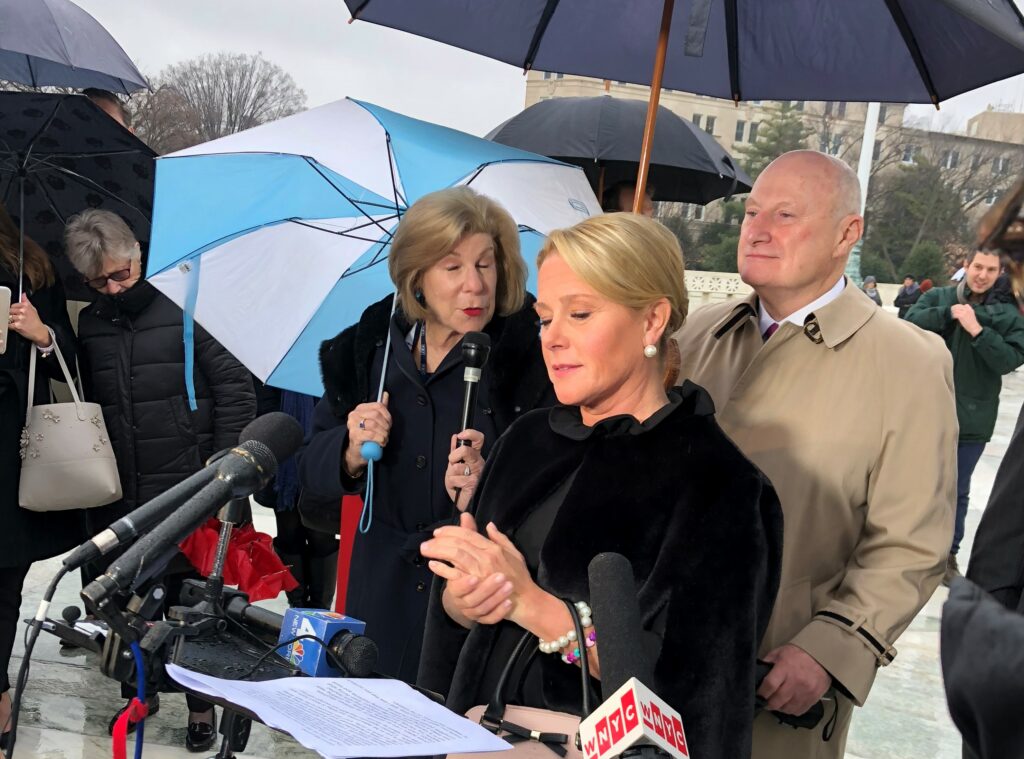Supreme Court will Overturn - but not Vindicate
Listen to audio version of this article

WASHINGTON - I know, it's hazardous to predict how the U.S. Supreme Court is going to rule after hearing the arguments, but when it comes to Bridgegate, I'm going to make an exception.
The convictions of Bill Baroni and Bridget Kelly are going to be overturned.
I say that based on the law, and how it was enunciated and interpreted by the justices during Tuesday's hour-long hearing.
It's hard to separate the overriding legal principle from the tawdry act itself - closing two local lanes of the George Washington Bridge for political purposes, thereby causing massive, week-long traffic jams in Fort Lee. But let's try.
The convictions of Baroni and Kelly were partially based on the fact they misused public resources, namely the bridge, which is operated by the Port Authority of New York and New Jersey. The misuse was closing the lanes and redirecting traffic.
Various analogies were brought up in court, including a mayor who has DPW workers paint his house or snow plows come to the mayor's street first. That too would be misusing public resources or services.
But here is an important distinction. In the cases cited, the mayor gets a direct benefit from the misuse - a house freshly painted or a cleared street.
So, what direct benefit did Baroni and Kelly get from the bridge fiasco? There was, as was also pointed out in court, no evidence of any bribe or kickback.
Of course, it can be argued that there was a political benefit - namely that the scheme was part of an effort to ensure Gov. Chris Christie's reelection. The benefit of that to Baroni and Kelly was that they got to keep their jobs. He was a Port Authority executive; she was deputy chief of staff in Christie's office.
Still, as the court has ruled in other public corruption matters, an indirect benefit is not sufficient to warrant a conviction. The benefit must be direct.
There was also a related issue. The Port Authority runs the bridge, so it has the authority to realign lanes. O.K. but did Baroni exercise that authority improperly?
John Roberts, the chief justice, said he considered the record mixed on that.
Justice Stephen Breyer was perhaps the bluntest. He observed simply that he didn't see the government's case.
Now we come to another part of the conviction. That was that Kelly and Baroni's scheme wasted Port Authority resources.
This seems a bit sketchy. It suggests that the authority had to do loads of extra work to accommodate the lane switch.
Really?
What did it have to do? Put up a few cones? Reassign some toll workers?
More than one justice seemed to suggest that this was a red herring. As Justice Elena Kagan pointed out, the overall intent of the scheme was to adversely impact Fort Lee, not overtax workers.
It's worth remembering that the legal issues under consideration here are separate from the overall act, which can be only defined as stupid and malicious. But being stupid and malicious is not necessarily a criminal act - even for politicians.
Christie was in the courtroom Tuesday. Unlike Baroni and Kelly, he did not share his thoughts with reporters. You had to wonder what he was thinking, given the fact this entire episode was done to help his reelection.
Some may be disappointed if the convictions are overturned, thinking this will somehow vindicate the former governor.
It won't. Even though he was never charged, Christie will continue to be known as "the guy who closed the bridge."
And Christie detractors could still take solace from the fact the bridge scheme helped derail his 2016 presidential bid.





